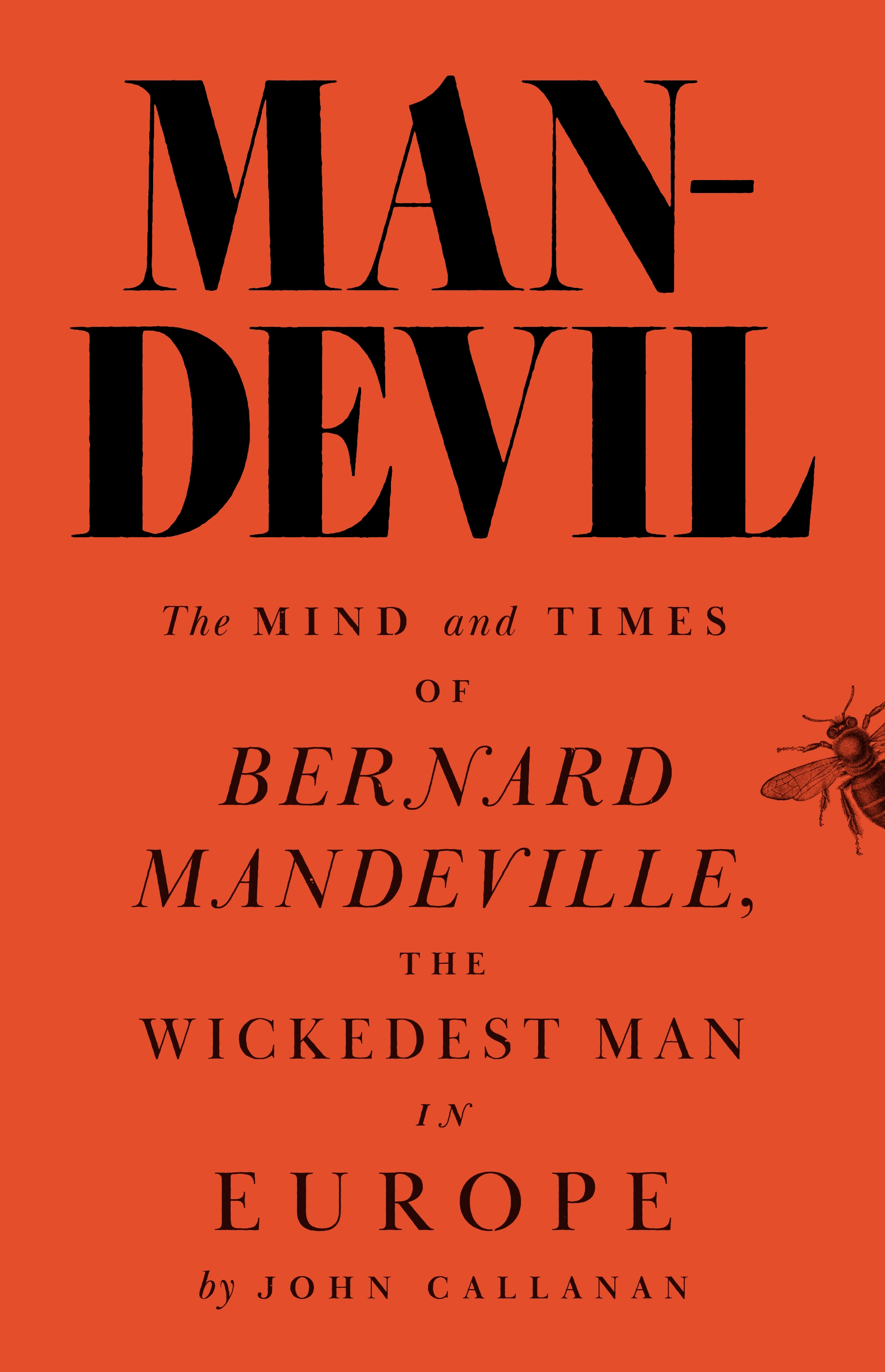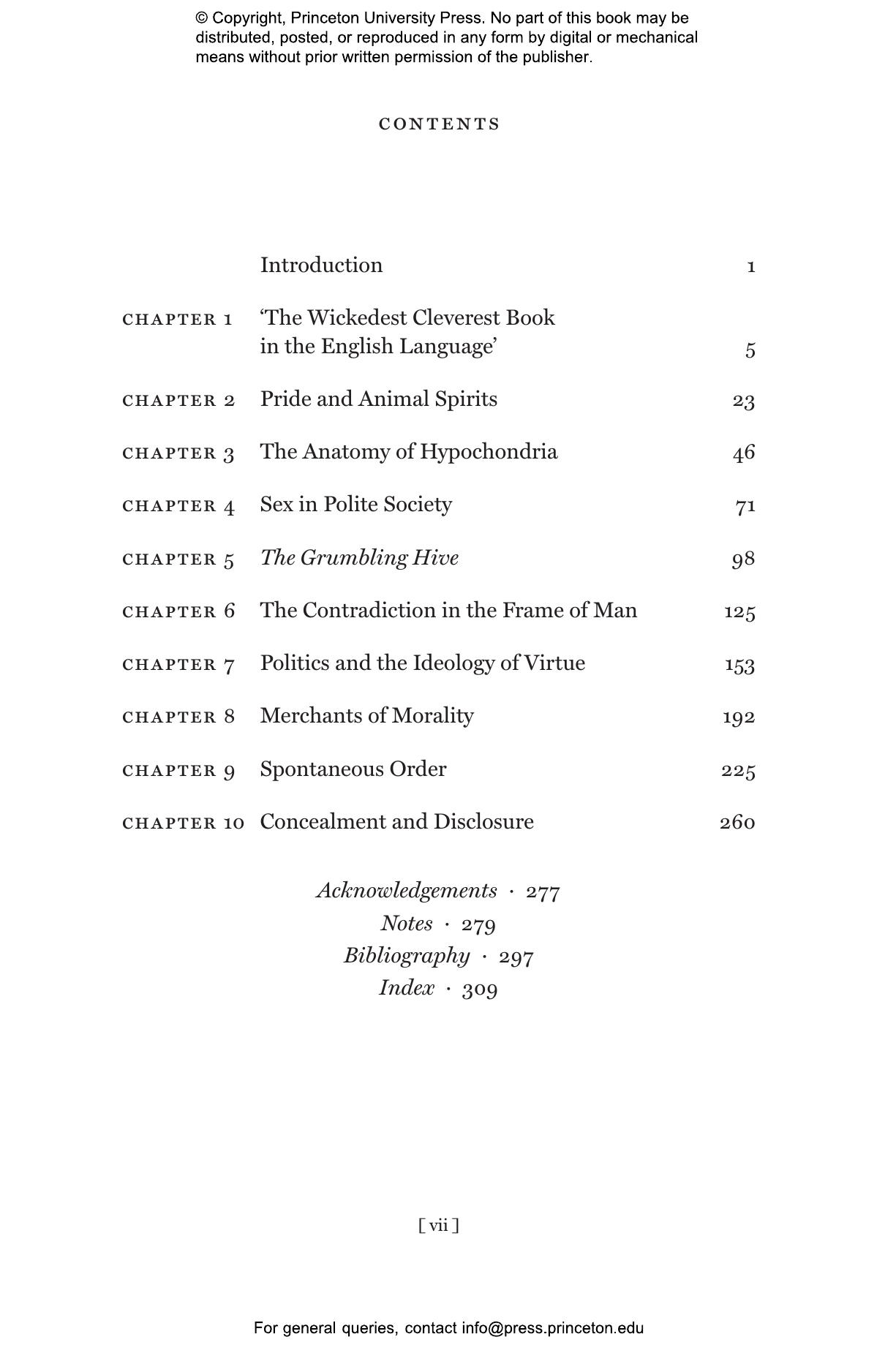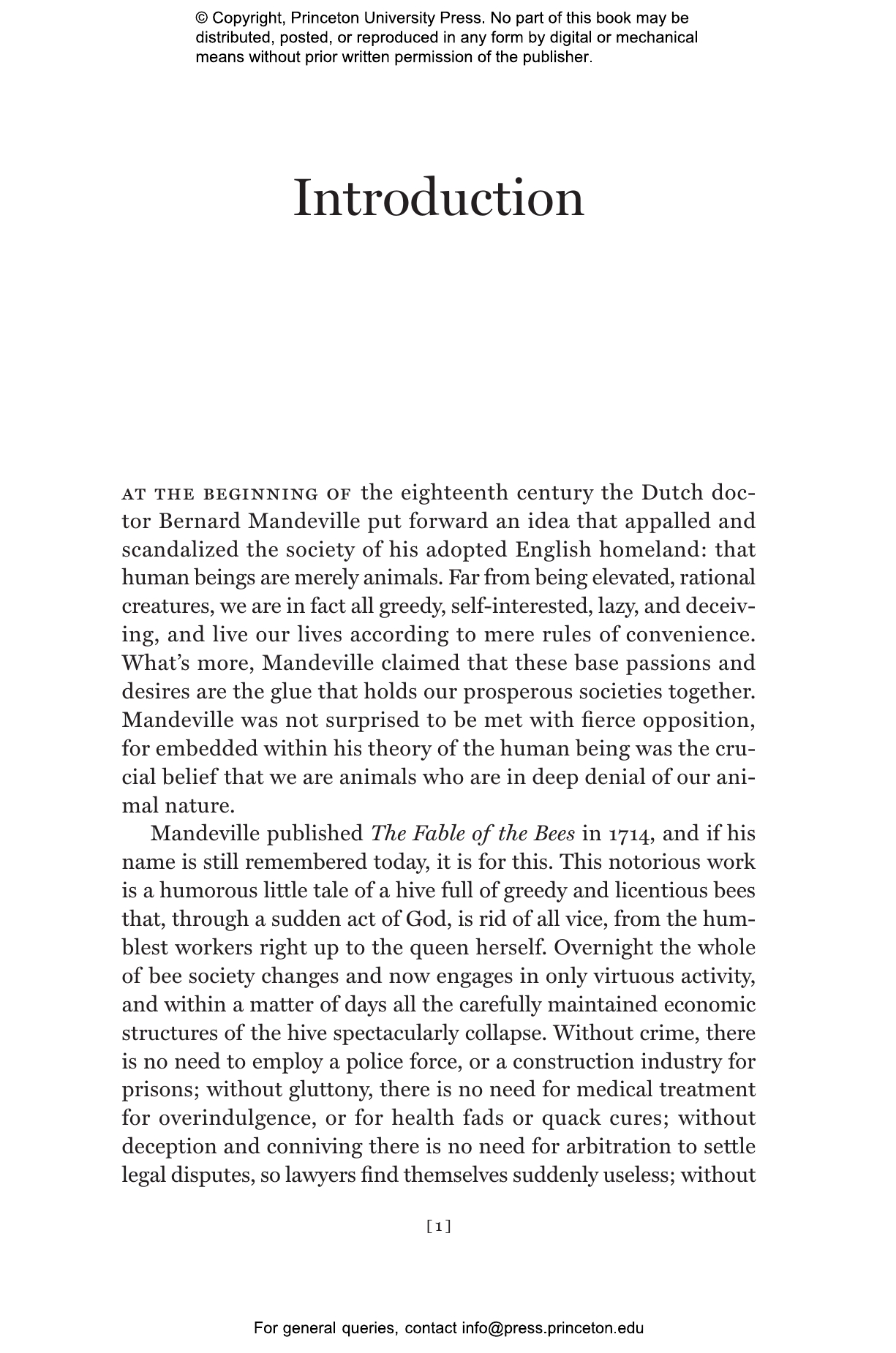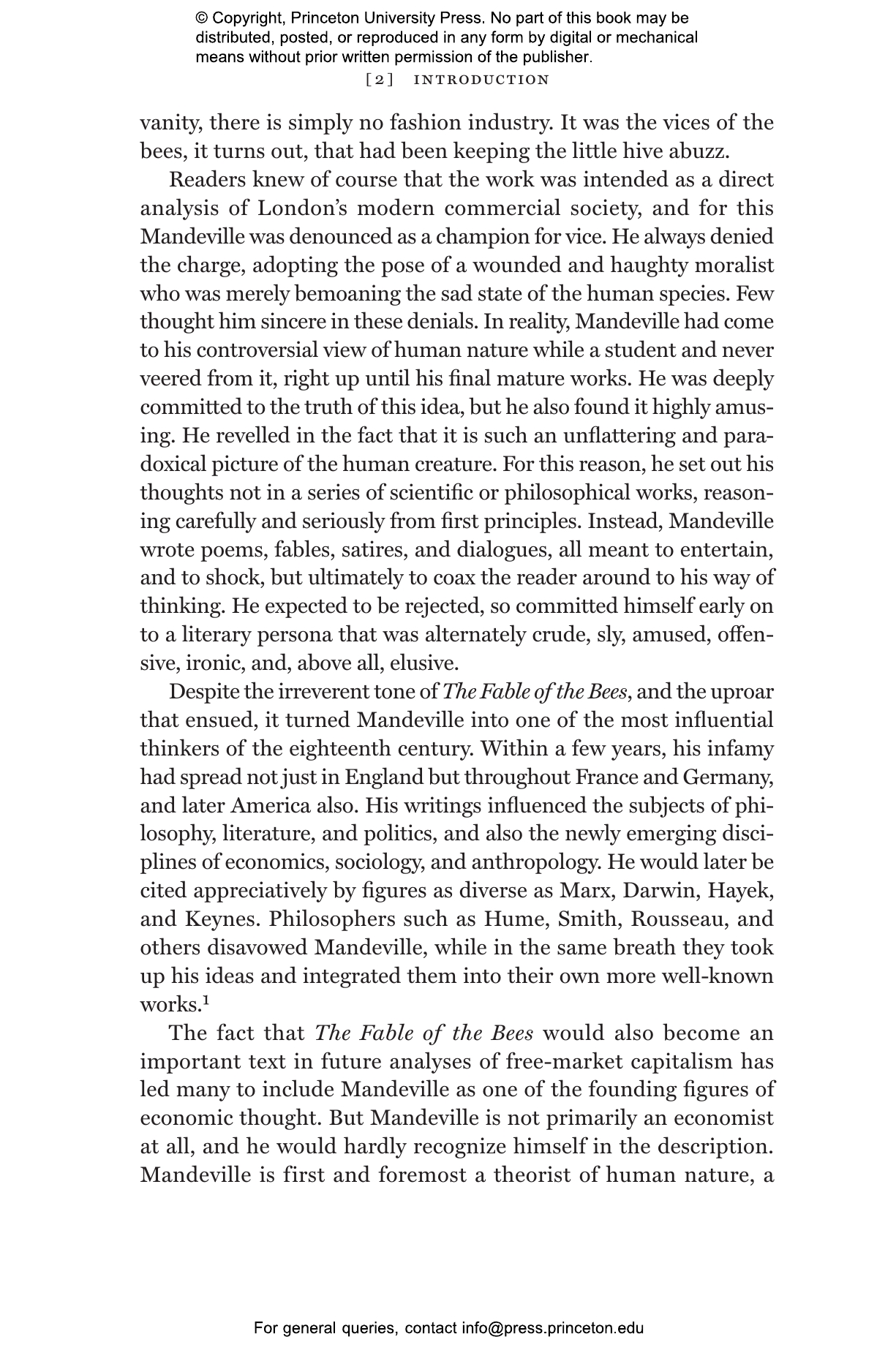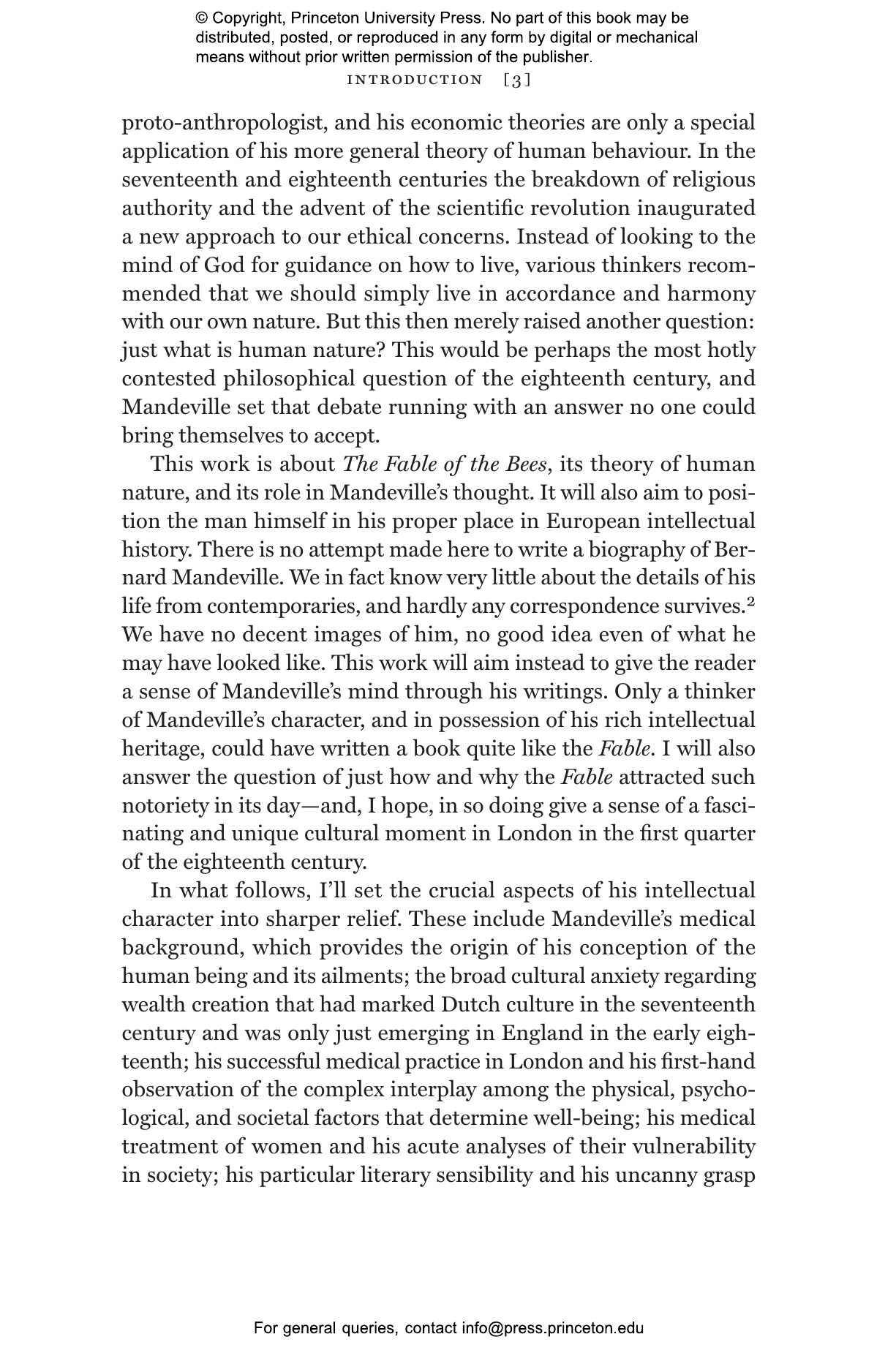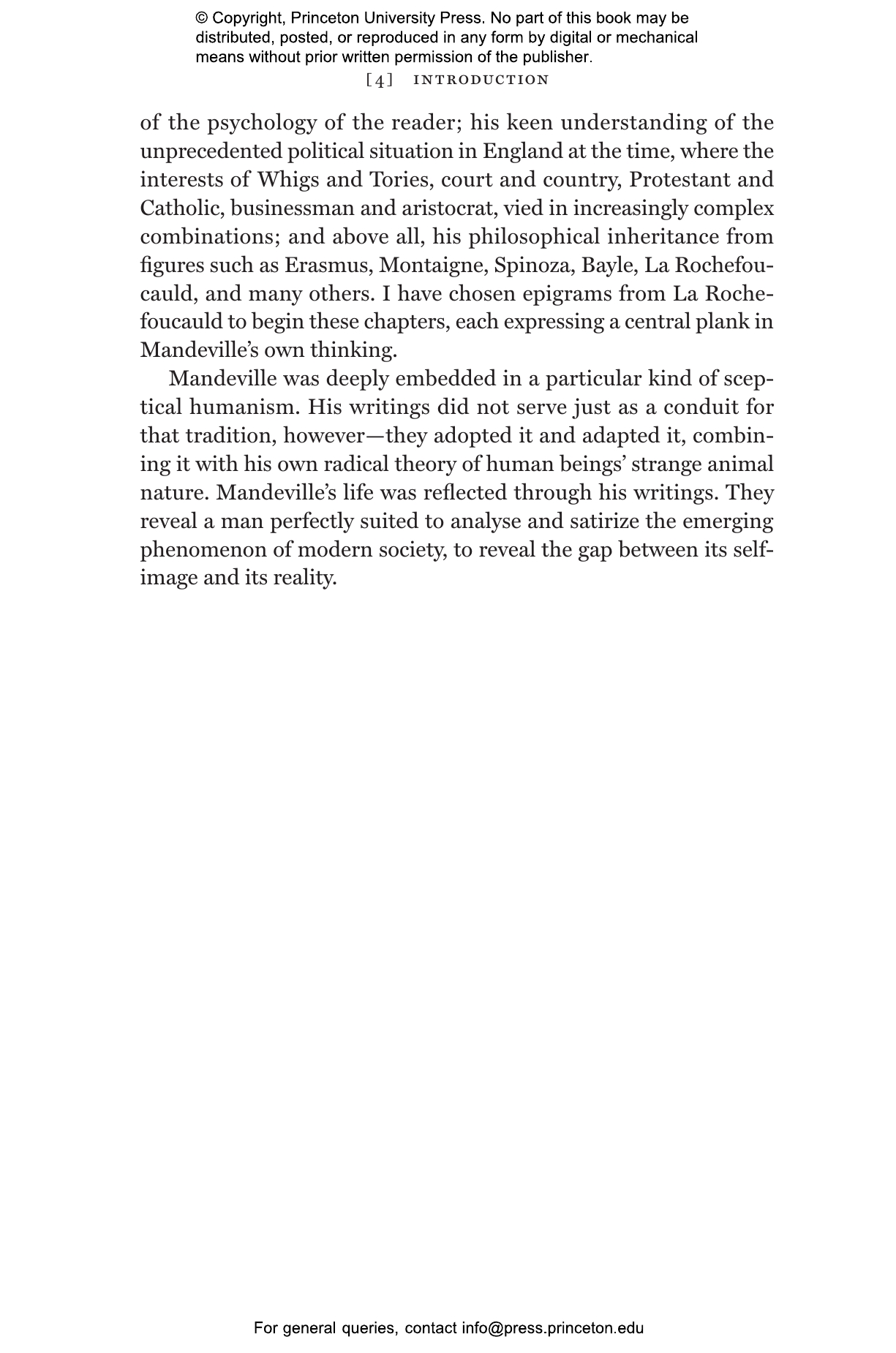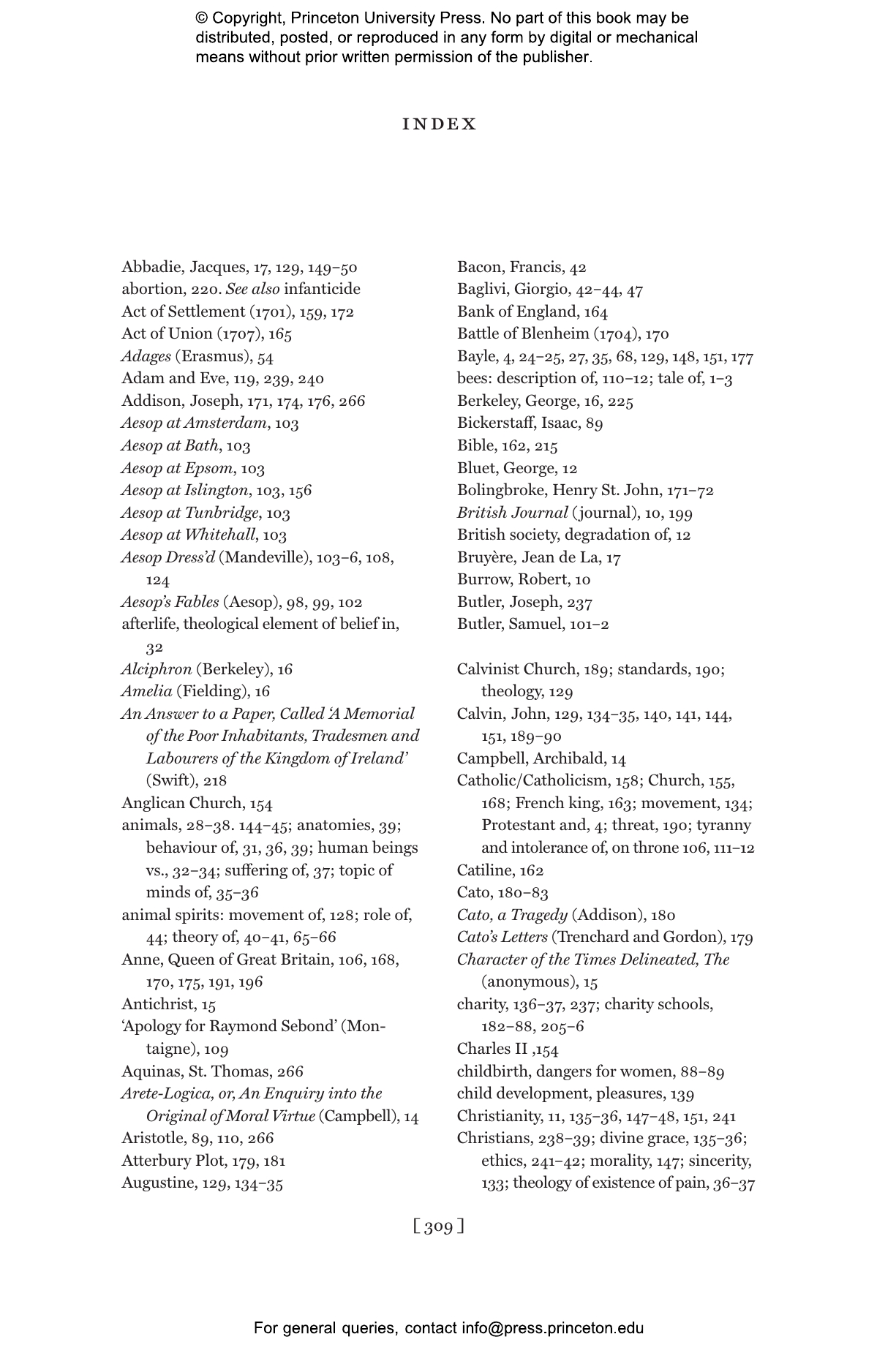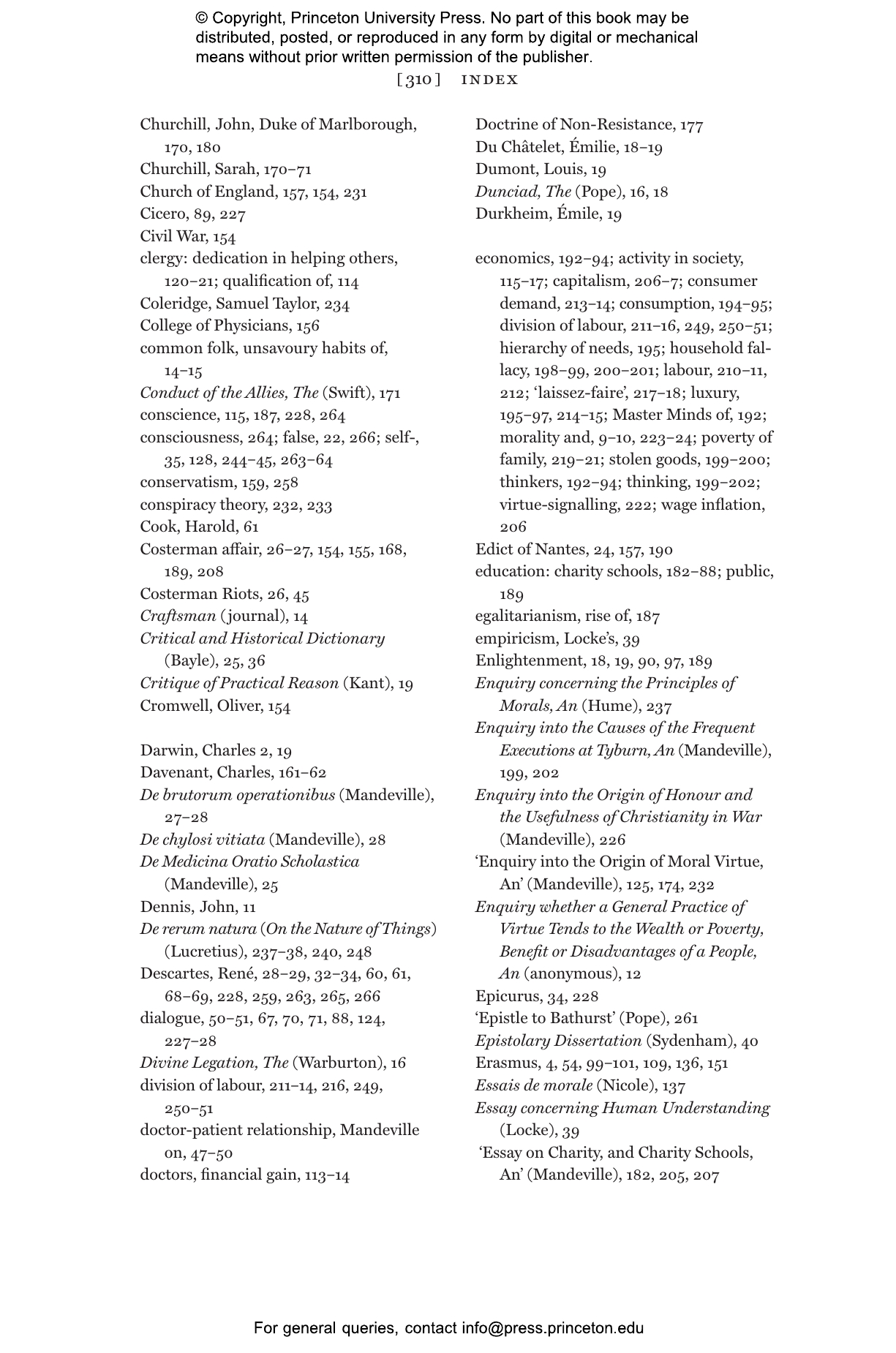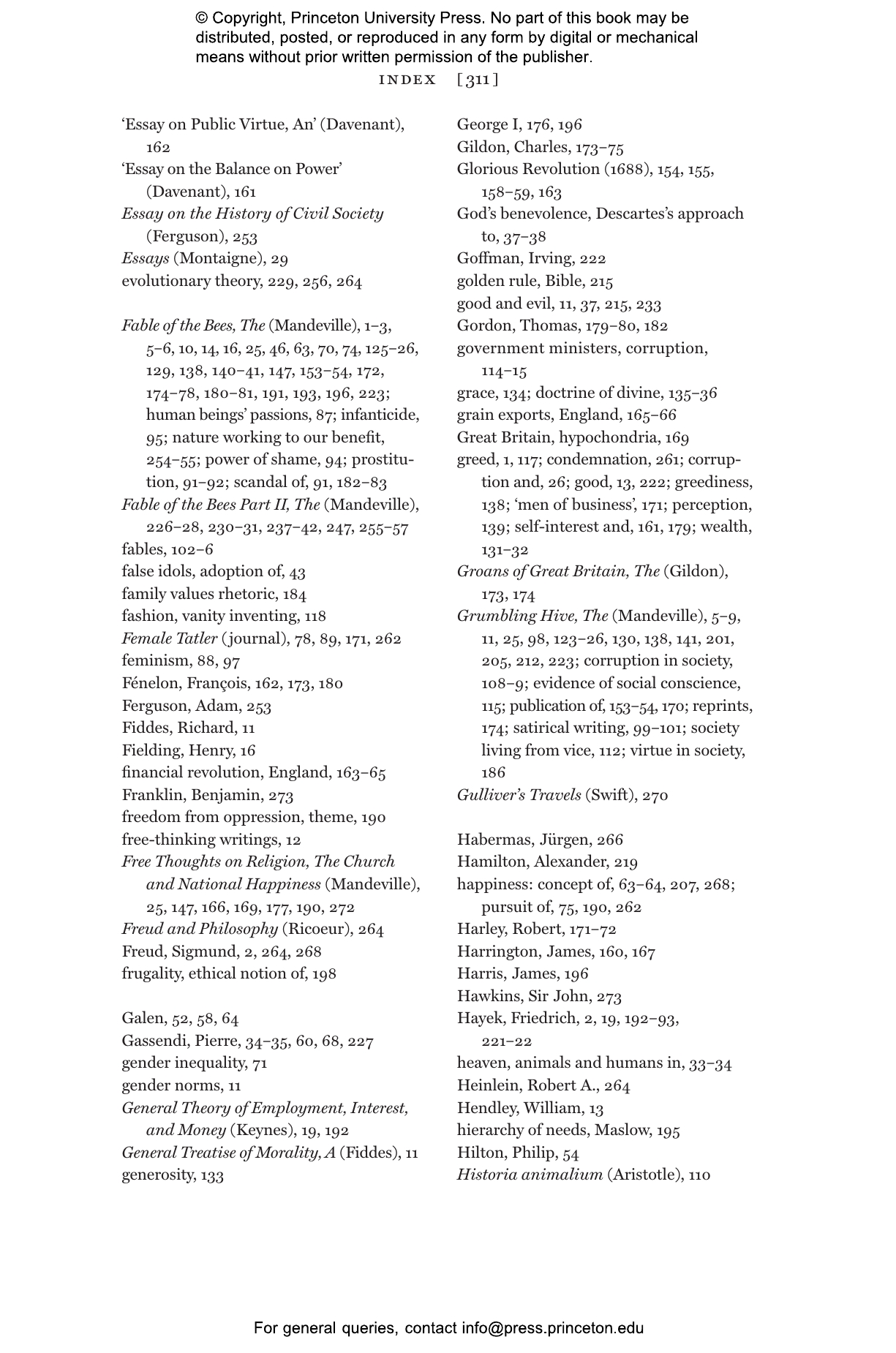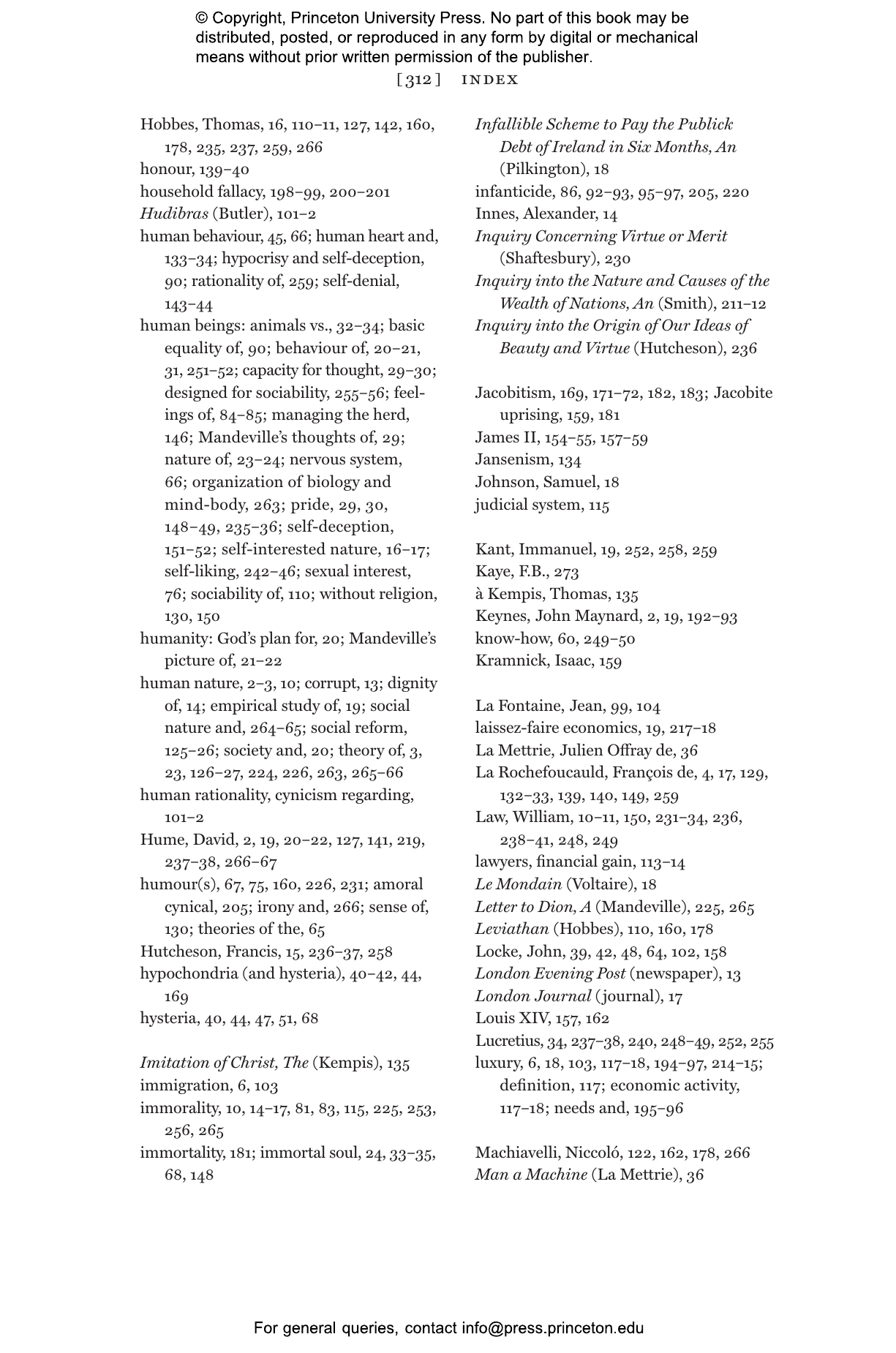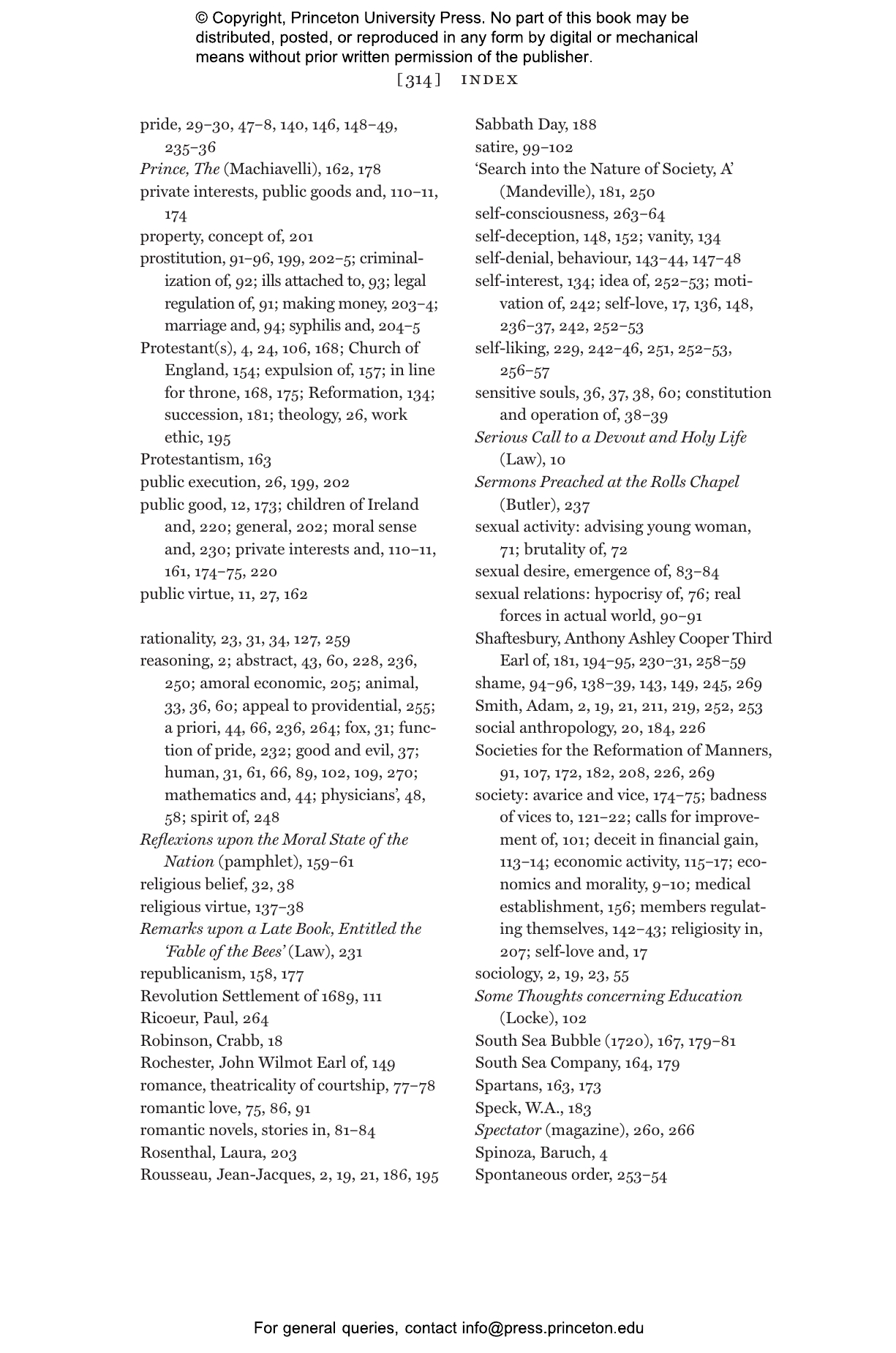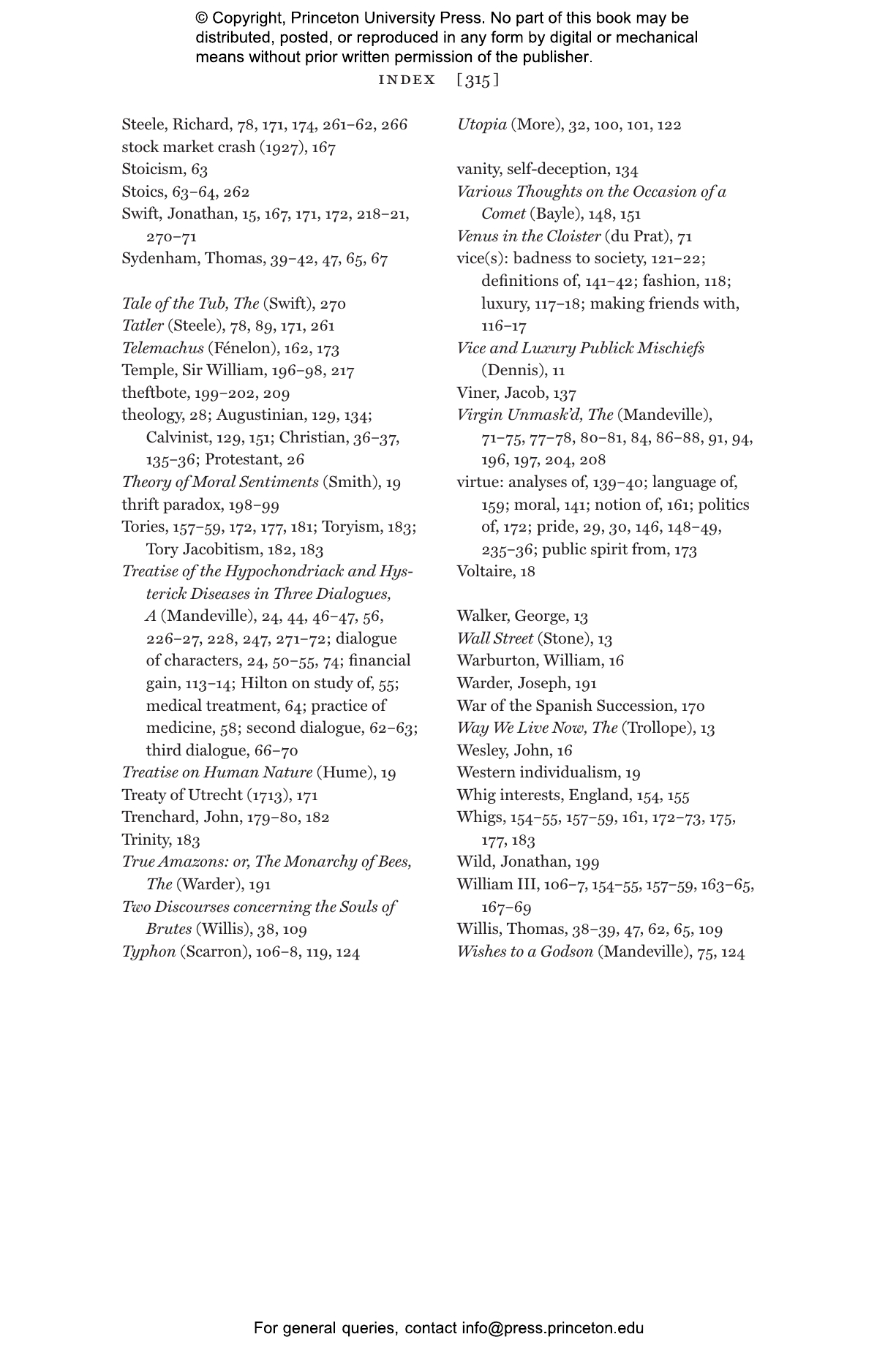In 1714, doctor, philosopher and writer Bernard Mandeville published The Fable of the Bees, a humorous tale in which a prosperous hive full of greedy and licentious bees trade their vices for virtues and immediately fall into economic and societal collapse. Outrage among the reading public followed; philosophers took up their pens to refute what they saw as the fable’s central assertion. How could it be that an immoral community thrived but the introduction of morality caused it to crash and burn? In Man-Devil, John Callanan examines Mandeville and his famous fable, showing how its contentious claim—that vice was essential to the economic flourishing of any society—formed part of Mandeville’s overall theory of human nature. Mandeville, Callanan argues, was perfectly suited to analyze and satirize the emerging phenomenon of modern society—and reveal the gap between its self-image and its reality.
Callanan shows that Mandeville’s thinking was informed by his medical training and his innovative approach to the treatment of illness with both physiological and psychological components. Through incisive and controversial analyses of sexual mores, gender inequality, economic structures, and political ideology, Mandeville sought to provide a naturalistic account of human behavior—one that put humans in close continuity with animals. Aware that his fellow human beings might find this offensive, he cloaked his theories in fables, poems, anecdotes, and humorous stories. Mandeville mastered irony precisely for the purpose of making us aware of uncomfortable aspects of our deepest natures—aspects that we still struggle to acknowledge today.
John Callanan is reader in the history of philosophy, Department of Philosophy, at King’s College London. He is the author of Kant’s Groundwork of the Metaphysics of Morals and the coeditor of Kant and Animals.
“Bernard Mandeville was one of the most controversial writers of early eighteenth-century England, famed for coining the paradox ‘private vices, publick benefits’ as the subtitle to his major work, The Fable of the Bees. While John Callanan never loses sight of this satirical, even mischievous, bent, he convincingly shows the reader why Mandeville became such an influential figure in eighteenth-century thought, taken up by David Hume and Adam Smith among others. Well-researched and original in its approach, his book is highly recommended.”—Malcolm Jack, historian and Mandeville scholar
“Mandeville is the first great social theorist, and everyone who comes after him—Rousseau, Smith, Marx, Hayek—is deeply in his debt. But he is slippery and paradoxical. John Callanan at last makes Mandeville’s core doctrine clear and brings out his continuing importance for understanding human beings as sociable animals. This is an important, long-needed book.”—David Wootton, author of Power, Pleasure, and Profit: Insatiable Appetites from Machiavelli to Madison
“Callanan sensibly and sensitively places the infamous Fable of the Bees in the wider context of Mandeville’s other writings and intellectual context and, thereby, illuminates him as a diagnostician of human self-concealment and satirist of human pride. He reveals the Dutch physician with a successful London medical practice as an original pilferer of other people’s useful ideas and with a relish for the urbane. And for those who recognize a good bargain when they are offered one, this book also instructs in the art of living, even points the way to the path of wisdom.”—Eric Schliesser, author of Adam Smith: Systematic Philosopher and Public Thinker
“John Callanan's enjoyable account of Mandeville explains clearly both why the author of The Fable of the Bees was notorious in his own day and why major figures such as Hume, Rousseau, and Smith felt the need to engage with him so closely. It tells the reader what we know about Mandeville's life, and explores the full range of Mandeville's writings. Mandeville's ideas are put in context, but are also brought to philosophical life. This is the best account in English of Mandeville’s thought as a whole.”—James Harris, University of St Andrews
“This is the book on Mandeville I’ve long hoped for, and it is even better than I could have hoped. It is beautifully and engagingly written, as befitting a book on a great, extremely funny—not a common virtue of philosophers—and often scurrilous prose stylist. The Mandeville which emerges in Callanan’s book is provocative and subtle, a humane exponent of Terence’s dictum “nothing human is alien to me” but also a sharp-witted critic of hypocrisy possessing a medical remove from which to examine our paradoxical species.”—Aaron Garrett, Boston University
“John Callanan’s Man-Devil strikes a balance between a ‘forensic’ investigation of Mandeville's engagement with reactions to his ideas in his own time and an examination of the Mandevillean tendency to cross disciplinary boundaries and enrich contemporary controversies in human and social sciences. ‘Nothing human is alien’ to Mandeville, including the human animal’s wondrous potential of being in denial about its own bottomless self-deception.”—Spyridon Tegos, University of Crete


